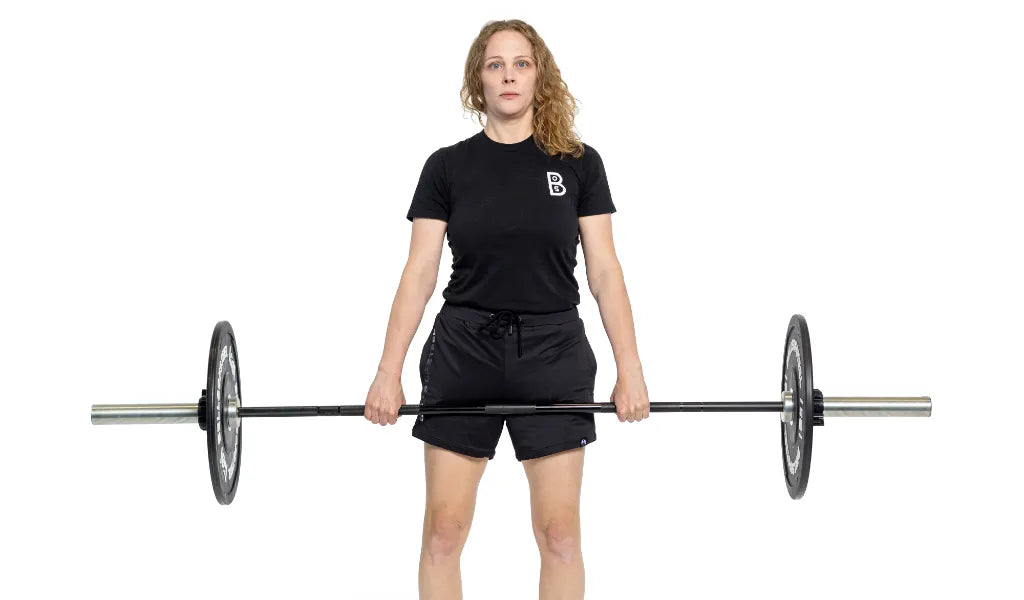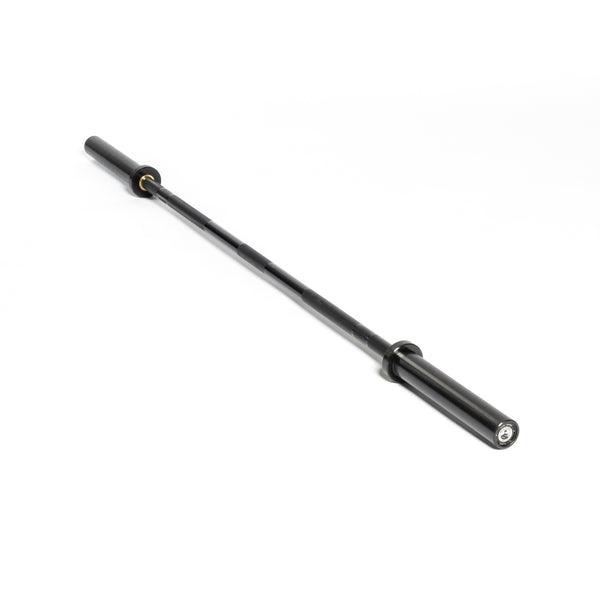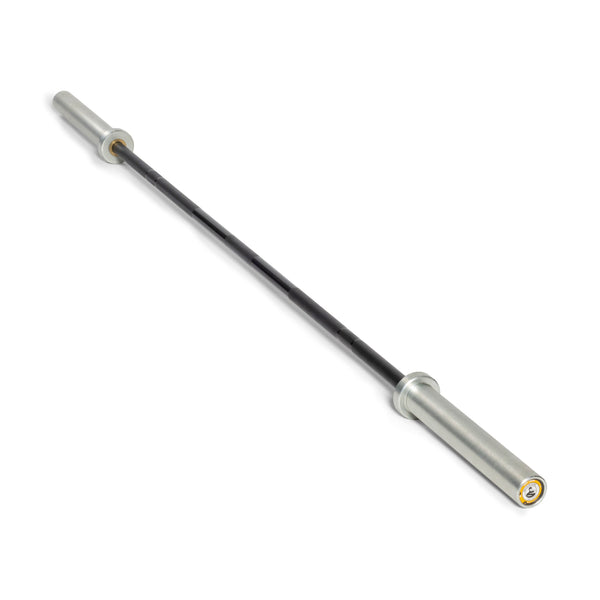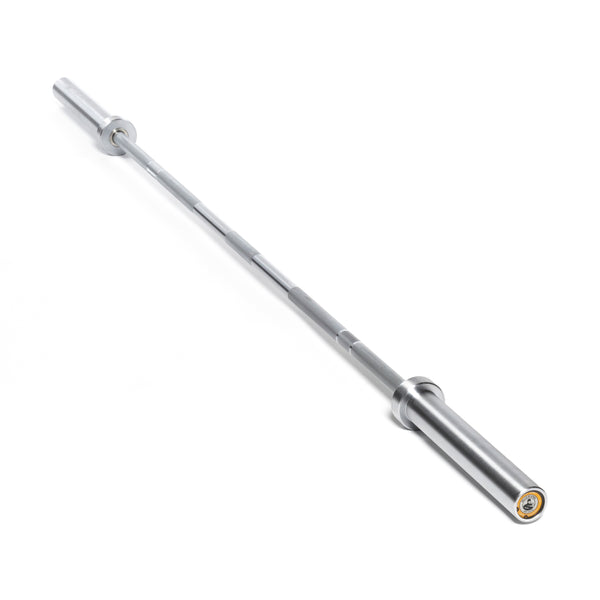When it comes to weightlifting, finding the right equipment is key to maximizing gains while staying comfortable and safe. One tool specifically designed with certain lifters in mind is the women’s barbell.
But is a women’s barbell worth adding to your home gym setup, or should you just stick with the standard bar? Let’s break it down (without breaking a sweat).
What is a Women's Barbell?
A women’s barbell is not just a lighter version of the standard barbell; it’s designed to suit the biomechanics of lifters with smaller hands and frames. Women's barbells cater to grip strength and comfort, making those heavy lifts feel a little more manageable—without sacrificing any performance.
Sizing: How Does a Women's Barbell Differ?
A women's barbell has some key differences when compared to its larger, stockier cousin—the standard barbell:
- Weight: A women's barbell typically weighs 15 kg (33 lbs), compared to the typical 20 kg (44 lbs) of a standard, general use or Olympic barbell. So, it’s a bit lighter, which can make a difference for beginners or those focused on form and technique.
- Diameter: The most noticeable change is the diameter of the barbell's shaft. A women's barbell is 25 mm in diameter, compared to the standard barbell's 28 mm. This slimmer grip allows for better control and comfort, especially for those with smaller hands.
- Length: Women’s barbells are also shorter, generally measuring around 6.5 feet (201 cm), compared to the 7.2 feet (220 cm) of a standard barbell.
Why Getting a Women's Barbell is Totally Worth It
Now that we know what makes a women's barbell unique, let’s explore why investing in one might be worth it.
1. The Perfect Fit for Smaller Hands
If you've ever tried to grip a standard barbell and felt like you were hanging on for dear life, you’ll appreciate the thinner diameter of a women’s barbell. It allows for a more secure and comfortable grip, meaning you’ll have better control during lifts like deadlifts, snatches, and cleans. Better grip = better form = better gains!
2. Easier to Handle for Beginners
For anyone just starting out, the lighter weight of a women’s barbell can be a game-changer. It's much more manageable, allowing beginners to focus on perfecting their technique without worrying about balancing a heavier bar. Plus, you won’t feel like you're battling the bar itself before you’ve even added weights.
3. Improved Technique on Olympic Lifts
Olympic lifts, like the snatch and clean & jerk, require precision and good control over the bar. The thinner grip and lighter weight of a women's barbell can make these lifts feel more natural and fluid. It’s easier to master the technical aspects when the bar doesn’t feel like it’s ready to take you for a ride.
4. Progression-Friendly
Women’s barbells are ideal for those who want to gradually increase their lifting capacity. The smaller diameter and lighter weight provide an opportunity to focus on adding small increments of weight while maintaining proper form, which is essential for long-term progress.
But Wait… Why a Women's Barbell Might Not Be Worth It
While women’s barbells have their perks, they might not be necessary for everyone.
1. Competitive Lifters May Use Standard Bars
If you’re planning to compete in powerlifting, weightlifting, or other competitions, be aware that many federations use standard barbells during events. If you’re serious about competing, it’s worth getting comfortable with both the women’s and men’s bars to ensure you're ready for competition day.
2. Some Lifters Prefer Heavier Bars
Not everyone wants to start lighter. For those who’ve been lifting for a while, a standard barbell may feel more appropriate from the get-go. Some experienced lifters might find that the heavier bar provides a better balance, especially during squats and bench presses.
3. Limited Versatility in Mixed Gyms
If you’re sharing your home gym setup with others—like a partner, roommate, or even housemates with different lifting needs—a standard bar might be the better investment for versatility. That way, everyone can get their pump on with one bar that fits all.
FAQs About Women's Barbells
Q: Can men use a women’s barbell?
A: Of course! It’s just a barbell with different specs. If the lighter weight or slimmer grip feels better, go for it.
Q: Do I need a women’s barbell to start lifting?
A: Not necessarily. You can start with any barbell that feels right for you. The women’s bar is just another tool in your lifting arsenal, not a requirement.
Q: Should I switch to a standard barbell as I progress?
A: That depends on your goals. If you’re planning to compete, it’s a good idea to get comfortable with the heavier bar. Otherwise, keep using what works best for you.
Conclusion: Is It Worth It?
A women’s barbell can be a fantastic addition to any home gym, especially if you’ve got smaller hands or are just starting your lifting journey. With a more comfortable grip, a lighter weight, and less strain on your joints, it's designed to help you focus on what matters—gaining strength and perfecting your form. However, if you’re a seasoned lifter or plan to compete, you might find yourself reaching for that standard barbell as you progress.
Key Takeaways:
- Women’s barbells weigh 15 kg, have a 25 mm diameter, and are shorter than standard barbells.
- Ideal for beginners, smaller-framed lifters, and those working on Olympic lifts.
- Provides better grip, less strain on joints, and more control over lifts.
- Competitive lifters should train with both women's and men’s barbells.
- It’s all about what feels right for you and your lifting goals.




